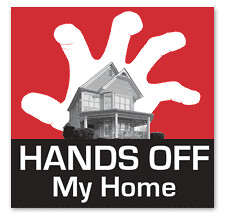WorldNetDaily Gas-price controls backfire in Hawaii
Cost of fuel rises faster under new law, while drivers pay less in other 49 states
Hawaii's gas price controls, imposed last fall when the cost of fuel was hovering around $3 a gallon in many parts of the U.S., have actually triggered much higher costs for consumers.
As of Friday, Hawaii drivers were paying the highest per-gallon costs in the nation, with record-setting prices of as much as $3.39. A year ago, consumers in Hawaii were paying nearly $1 a gallon less. The national average today is $2.24 a gallon.
The price controls were set by the state Public Utilities Commission Sept. 1. The idea was that the limits would bring Hawaii's gas prices in line with the mainland, which has traditionally had lower prices on many goods because of the transportation costs involved in delivering product to the islands.
Now there are moves afoot in the Hawaii legislature to scrap the price controls.
Hawaii's current controls base limits on per-gallon charges by averaging wholesale gas prices in New York, Los Angeles and the Gulf Coast. The PUC then adds a 4-cent "location adjustment" fee and another 18 cents as a market margin factor. Then a few cents more are added for transportation costs to various islands. Wholesale prices are set by the bureaucrats every Wednesday and go into effect the following Sunday.
In a recent check Hawaii's average cost per gallon was $2.84, followed by New York at $2.57, California at $2.53 and Connecticut at $2.47. The least expensive gas in the country is in Utah at $2.13.
Before the gas cap law, Hawaii paid an average of 44 cents more per gallon than the rest of the mainland. Since the law went into effect in September, however, the differential has increased to more than 50 cents per gallon.
Still, the proponents of the gas cap insist that prices would be even higher without the limits. Rep. Marcus Oshiro, an advocate of the gas cap, claims the new law has actually saved islanders $33 million. But even he is having second thoughts.
He said this week Hawaii has "achieved price parity with the mainland and in that sense, the law has been working." But he also notes that "oil companies have posted record profits during this period and without greater transparency, we are unable to determine whether the cap has allowed unreasonable profits."
"Basically the implementation of the gas cap was not as we expected," said Oshiro, the House majority leader. "The enforcement was not as vigorous as we thought it could be."
Three House committees in Hawaii this week approved a proposal to suspend the gas cap as of July 1, while mandating the PUC to closely monitor data on the petroleum business in Hawaii, including new standards for the kinds of confidential business information the industry needs to provide to the PUC.
One of the gas cap's key supporters is Senate Consumer Protection Chairman Ron Menor, who said he will do everything he can to make sure the cap stays in place.
"I cannot support a repeal because I think that would really be caving in to the oil industry that doesn't want to be regulated," Menor said.
Menor is proposing changes to the cap which he says could save drivers an extra 16-cents per gallon.
"Instead of talking about a repeal or suspension, legislators ought to be seriously considering strengthening and improving the law so we can provide even greater savings to consumers," Menor said.
Meanwhile, free-market advocates say retailers charged the maximum allowable under the limits to compensate for the threat of not being able to profit in the future. Remember that the next time you say, "Exxon made how much money, there ought to be a law." In a free market system prices fix themselves and any attempt by corporations or government to adjust it never works out. Example, the gas companies decide to get together and raise prices for no good reason except to screw the working man, well after a couple of weeks of this one company says to itself, "I can make more money by cutting my prices and gaining volume." So that company cuts it's price and the other companies say what a minute we aren't going to stand for this and cut theirs below the first companies and you then have a price war and the consumers make out like bandits. On the other hand some "we know what's best for you" politicians decide the oil company is makeing too much profit at your expense, so they inact a bill that limits the price of fuel. As this cap goes on and the price of crude rises (because OPEC slows production)the oil companies start to loose money as they loose money they stop sending as much fuel to the stations because it's not worth it. This decrease in supply causes cost of fuel to soar and the people that do get fuel end up paying much more then if the politician had done nothing. Let the market handle itself and everyone will be better off. |














Comments on "The Gas Cap In Hawaii"
-
 Anonymous said ... (28 February, 2007 14:54) :
Anonymous said ... (28 February, 2007 14:54) :
-
 Anonymous said ... (05 March, 2007 07:35) :
Anonymous said ... (05 March, 2007 07:35) :
post a commentBest regards from NY! Fredric ian eyewear boulder asi distributor black sports bottles http://www.lexi-randall.info/Downloads-for-the-blackberry.html Lipitor fraud http://www.cdbusinesscard4.info/25thweddinganniversaryinvitations.html 03 gmc truck accessories http://www.craps-online-2.info/is-klonopin-used-as-a-date-rape-drug.html italian charm sports Vancouver+rbc+travel+insurance Road runner sports atv's best mud tires Trouver proactiv pharmacie chevrolet silverado used Little tits gallery free pull based shop scheduling software ny rangers hockey jersey henrik lundqvist forsale
That's a great story. Waiting for more. » »